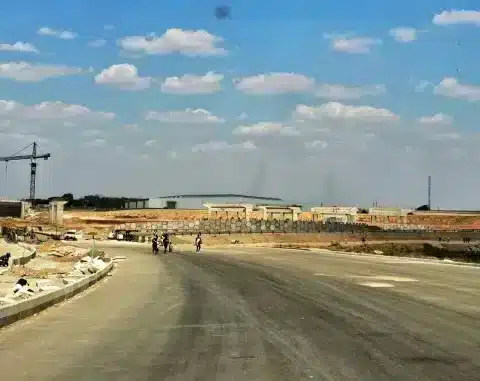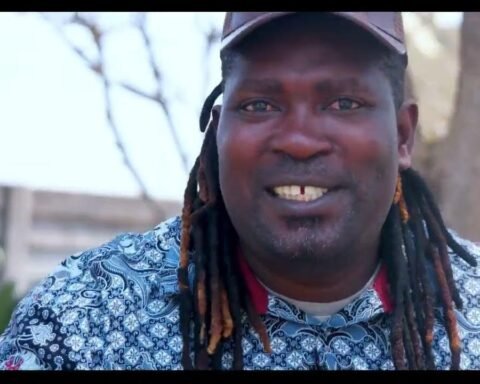Tariro Murinda (24) woke up to find a man slipping into her blankets in the bedroom she shared with her seven-year old sister. Before she could even scream for help, Tariro realised that the man was not a stranger but his father. He started fondling her breasts whilst signalling her to keep quiet. Tariro tried to free herself from his father’s vicious grip but he pressed her mercilessly to the floor, whilst he tore into her under-garments. Breathing heavily from the tussle, Tariro watched helplessly as her father forced himself on her. She tried to scream whilst wrestling her father’s hand that was clasping her mouth shut, but what came out was just a muffled sound.
As she lay beneath her father, Tariro could hear her young sister’s muffled and subdued cries, somewhere in the darkened room. Tariro could only whimper in pain as she endured the sexual assault whilst trying to reach out to her sister. Soon after the brutal assault, her father gathered his clothes, warned her against telling anyone, before sneaking out of the bedroom and tip-toeing to where Tariro’s step-mother lay in deep slumber.
Bruised and still in shock of the rape Tariro, grabbed her sister who was still huddled in a corner and crawled to their neighbour’s house. It has been exactly five years since her father died in prison after he was convicted and sentenced to 15 years for raping her, but the memories of the fateful night continue to haunt her.
“I have tried to move on and forget about what my father did to me, but I just cannot forget about the rape,” she said during an interview in Harare recently.
Tariro is among a group of sexual assault survivors who are receiving counselling and capacity building from Medicins Sans Frontier, MSF (Belgium) under one of its programmes to rehabilitate victims of sexual assault that are referred to them for further assistance. She has since joined a cohort of women with similar experiences who are undertaking dressmaking courses at a non-governmental organisation-run dressmaking school in Harare, funded by MSF (Belgium) to ensure that they can fend for themselves.
The assistance includes school fees for those who want to go back to school, food, bus fare and in some instances payment for the child minder for some of the victims who find themselves pregnant after rape. Unlike Tariro, who was left both emotionally and physically traumatized, Lettie Mabhaure (not her real name) discovered that she was pregnant three months after she had been raped by her neighbour’s employer whilst working as a maid in Goromonzi.
“I was so traumatised that I could not even tell anyone that I had been raped. I just left my employment and went to live with my mother,” she revealed.
Unknown to her, she was already pregnant. With no money for the upkeep of her child, or a decent place to stay, Lettie had to turn to MSF offices for assistance.
“They offered to pay for my fees at a dressmaking college, and also pay the baby minder, whilst I am attending lessons,” she revealed.
Lettie and Saru are among thousands of sexual abuse victims who have been assisted by MSF (Belgium) to get back on their feet following their traumatic rape experiences. Although they have different backgrounds, they have created a strong sisterhood bond from the misfortunes that brought them together – sexual assault. Whilst others can speak openly about it, others continue to be haunted by the past. Their only hope for the future lies in the vocational courses their undertaking.
“I do not think I will be able to have an intimate relationship. I am still traumatized, but I can’t wait to get a job once I have finished this course,” Tariro said.
MSF has to date assisted 6 000 survivors of sexual assault since the programme started in 2012 and spends $1 million on the project annually. Most of the survivors are adolescents who are often abused by relatives and family acquaintances, further compromising their security in the event that the perpetrator is not given a custodial sentence. MSF Health Promotion Information Education and Communication officer Mr Brian Hove said the programme was introduced after a realisation that hundreds of sexual assault victims needed to be rehabilitated following the assault.
“Over the years there have been cases of survivors that are repeatedly abused, and often find themselves homeless with no one to turn to. Although these cases are not very substantial, cases of re-victimisation are very common and are often not spoken about. However, there are several who are brave and come to our offices to seek assistance and we often take them aboard,” he said.
Mr Hove added that there has been an increase to 84 percent from 76 percent of sexual violence incidences perpetrated by people known to the survivor. That development has forced MSF to allocate more resources to the programme.
“The programme is on-going and we target both female and male adults and child survivors from all walks of life. As MSF in collaboration with the City of Harare we have further decentralised post-rape services to 8 polyclinics within the City of Harare. These are Rujeko – Dzivarasekwa, Glen View, Mabvuku, Hatcliffe, Budiriro, Kuwadzana, Highfield and Rutsanana,” he said.
Mr Hove added his organisation would continue to increase quality medical care for survivors of sexual abuse and gender-based violence in a timely manner in their nearest clinic to reduce transport costs. Realising the magnitude of sexual assault and gender-based violence, MSF has come up with several awareness initiatives targeted at communities to reduce the incidences.
“Over the years, MSF has been active in raising awareness in different communities using different approaches that include community trainings targeting information multipliers, drama and focus group discussions. Last year, we decided to work with various artists to create awareness against rape. We roped in local artistes and sexual violence activist Edith Weutonga, Selmor Mtukudzi, Ba Shupi and Ras Caleb and managed to come up with a single,” he said.
The organization has released a documentary titled Mask to give survivors of sexual violence a platform to share their experiences. Zimbabwe is among the countries in the world that are fighting to reduce sexual assault cases, including rape. Rape is a “global pandemonium” and not an act restricted to backward and underdeveloped world. And because of the social stigma and shaming attached to it, victims find it extremely difficult to overcome from the trauma, let alone talk about it openly.
- Feedback:chinhemaruva@gmail.com








